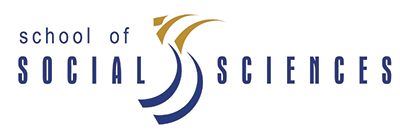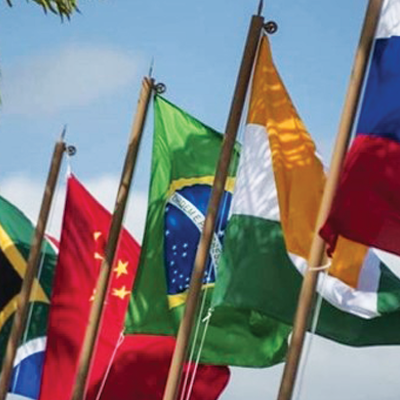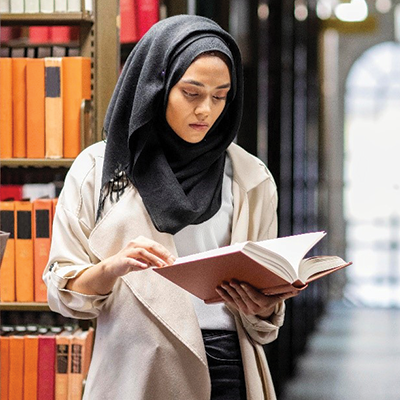In their third year of study students will take 2 IR courses in each semester = 1 compulsory course + 1 elective course per semester = 4 courses for the year.
There is a tutorial programme for both compulsory courses and these are held in the assigned timetable slot for IR on a Friday morning. Please do not schedule any other course during this time.
Third-year Compulsory courses
All students must take the compulsory course in Semester One which is INTR3025 – Thinking, Theorising and Research IR which and in Semester Two INTR3012 – Transnational Issues. Both these courses are taught in the Monday timetable slot.
INTR3025 – Thinking, Theorising and Researching International Relations (Semester One – Compulsory Course)
The objective of this course is to allow students to critically engage with IR theory. The course’s focus is two-fold for the IR theory section 1) It asks why IR theory is Western centric and what are the implications of this for the field broadly and the discipline within the global South in particular and 2) How do we create global IR theory. As basic and mostly Western IR theoretical paradigms have been covered in both first and second year, students are assumed to be familiar with these, although you may want to revise these from your first-year textbook. The course further intends to facilitate critical engagement and reflection regarding the origins, purposes, and uses of knowledges in the study of IR. The course will also investigate the incorporation of indigenous knowledge from various parts to the globe to expand the analytic capacity of IR especially in the Global South. Student will also be introduced to some of the quantitative and qualitative research methods used by IR scholars with the last 3 weeks focusing on using quantitative methods as a means of conducting IR research.
INTR3012 – Transnational Issues (Semester Two – Compulsory Course)
This course examines key transnational issues that shape and inform world politics. It looks at new values diffused by global actors, including transnational social movements which seek to address global inequality and the global democratic deficit. The focus, in particular, will be on the various non-traditional security issues that are increasingly capturing international attention. Key concepts to be examined include human rights and humanitarian intervention, specifically the notion of the ‘responsibility to protect’ (R2P), transnational social movements, global migration, as well as the scramble for natural resources. Students are expected to gain greater awareness and understanding of transnational issues, particularly as they get to explore them in/from African contexts.
Elective Courses
Students can then choose 1 elective course per block. These courses are taught on the Wednesday timetable slot. We recommend that those students interested in our Postgraduate programme select courses on the basis that they may want to specialise in the area in later years of study. There are 4 electives per semester that students can choose from.
The elective courses are designed to be small seminar style classes with a maximum number of 40 students per course. These classes are designed to approximate a post-graduate teaching environment that are far more interactive with weekly discussions and class presentations. Due to the high levels of engagement, linked to student assessment, these are classes that should not be missed. Thus, there is an 80% attendance requirement to be allowed to submit the final assessment and attendance is taken weekly.
Semester One Elective Courses
Students are only allowed to choose 1 of these courses per semester.
INTR3002 – International Organizations (Semester One)
This course is designed as a specialised study of international organisations (IO) which are important actors in international relations. Its principal aim is to develop a comprehensive understanding of the various priorities and operations of both international (the United Nations) and regional (the African Union & the European Union) organisations. The histories and theories related to this field will be examined. Students will also be required to critically evaluate the role and utility of these organisations in today’s complex and dynamic international context.
INTR3022 – Intermediate International Political Economy (Semester One)
The objective of this course is to give you an in depth understanding of the study of International Political Economy as it relates to Africa. Complex economic theories are introduced. Student’s use of quantitative research skills to analyse economic data is expanded. Students are asked to critically evaluate existing policies of IPE actors. Students will be exposed to a comprehensive set of ideas and readings.
INTR3023 – Foreign Policy Analysis (Semester One)
The focus of this course is on consolidating student’s knowledge of foreign policy theories and practice. Moreover, it seeks to develop students’ understanding of foreign policy concepts and the theoretical frameworks within which they function. Students will also be required to analyse and evaluate different foreign policy approaches or tactics together with their ultimate outcomes. Finally, students are required to apply what they have learned in a simulation exercise.
INTR3024 – South African Foreign Policy (Semester One)
This course probes the evolution of South Africa’s foreign policy against the backdrop of changes in both the domestic and international arenas. The focus will be on the interplay of events and actors in the post-apartheid era. The course attempts to build on the previous courses on South African/African International Relations, but it is also an opportunity for students to gain in-depth appreciations of the continuities and discontinuities in South African foreign policy. Conceptually, the course is anchored in ideas about foreign policy--the projection of interests and power beyond borders. Empirically, the course touches on a wide range of subjects such as South Africa in Africa, the Great Lakes region, Southern Africa, relations with Nigeria, the United States, and the BRICs. Students are encouraged to broaden their intellectual horizons by examining equally important themes and debates such as South Africa in the United Nations, relations with Western Europe, North Africa, Middle East, Latin America as well as bilateral relations with countries such as Angola, Japan, and North Korea.
Semester Two Elective Courses
Students are only allowed to choose 1 of these courses per semester.
INTR3008 – East Asia (Semester Two)
This course focuses on the international relations of the key East Asian states, China, Japan and Korea. The economic and political evolution of these three states will be discussed and evaluated. Inter-state conflicts over the following issues will be discussed and evaluated: China-Taiwan, North-South Korea, South China Sea, Sekaku/Daioyu Islands, Dokto/Takashima Islands. Conflicts are evaluated within the following theoretical frameworks: realist, neo-realist, Marxist, liberal, integration theory and constructivism. South Africa’s democratic transition is offered as a model for conflict resolution in East Asia. Additional topics for evaluation include China-US relations, China-Africa relations, Japan-Africa relations, Korea’s economic miracle and Korea-Africa relations. Given that over 25 percent of South Africa’s foreign trade is now with these three East Asian nations, the region is becoming increasingly important and relevant.
INTR3010 – The Middle East (Semester Two)
This course provides an understanding of the dynamics of domestic, regional and international politics in the Middle East. The course examines among other topics 1The Arab-Israeli conflict; 2) Prospects for peace and 3) The impact of political Islam and the foreign policy of selected Arab states.
INTR3013 – United States Foreign Policy (Semester Two)
The United States of America is a global super-power. The globalisation of the international political economy since the 1980s, the end of the Cold War and the ‘war on terror’ have reshaped the role of America and its foreign policy in the world. In many ways the new world order created over the past three decades has attempted to remake the world in the image of the USA. This course will attempt to equip students to engage in a critical analysis of American foreign policy. Students will interrogate how American foreign policy is shaped and will be provided with critical conceptual tools to understand the various social forces that mediate and determine policy outcomes. Moreover, students will be encouraged to scrutinise American foreign policy ‘from below’. This means students will be encouraged to engage with American foreign policy generally from the standpoint of the global South and particularly from the perspective of Africa. Moreover, the operations of power within American foreign policy and its consequences for the South and Africa will be critically assessed.
INTR3021- The International Relations of Africa (Semester Two)
The course has three core themes: Firstly, it explores the historical origins of Africa’s dependence on external forces, and its marginality in global politics, both in theory and in practice. Secondly, it examines how the different IR theories have conceptualised Africa, and how their representations of Africa have informed and shaped practices on and toward the continent. Thirdly, it will examine African perspectives on IR, in particular, those drawing from critical theory in its most engaging aspects. The course thus offers a functional knowledge of the underlying areas and philosophies that have defined Africa and its place in the making of the international order. The course thus explores the international relations of Africa from historical, theoretical and geopolitical perspectives.






